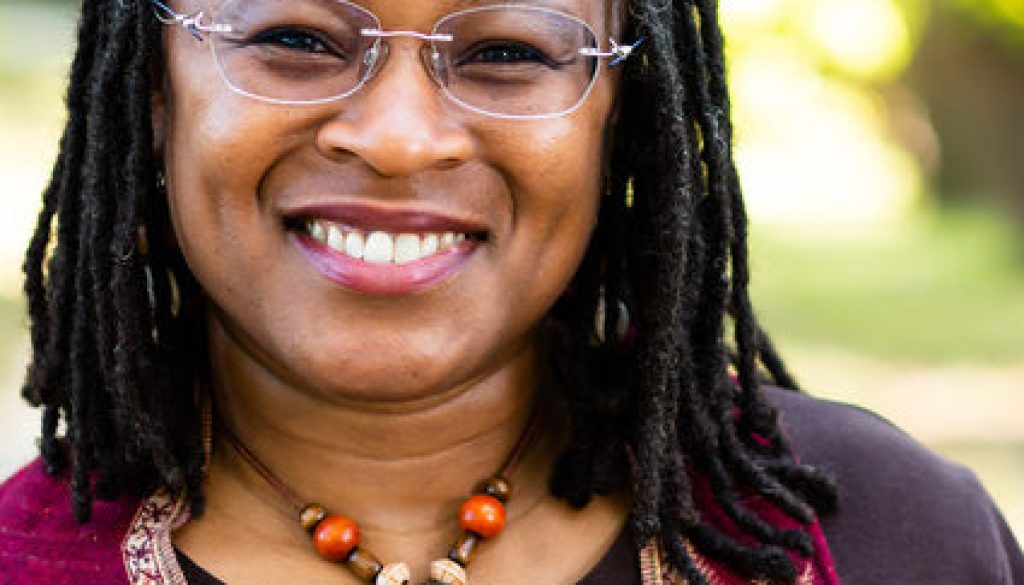‘Is this a parade or a march?’

Photo by Tina Ditto/TSDitto Photography
The Rev. Gabrielle Kennedy, an African-American parent in the Lindbergh School District, is a member of LEAD (Lindbergh Equity and Diversity), a group of mostly white parents who want to encourage the district to adopt anti-racism practices.
Along with serving as a pastor at Buren Chapel AME Church in Herculaneum, Mo., Kennedy is director of Faith and For the Sake of All, a non-profit that works with faith communities concerned with racial disparities in health and other life outcomes.
Here is an edited transcript of an interview with Richard Weiss
Weiss: The Lindbergh District has a relatively small number of African-American families. You have spent many years advocating around social justice causes. How did you approach working with LEAD?
Rev. Gabrielle Kennedy: I have resisted being front and center with LEAD because this fight is really not about people of color. It’s not about our thoughts. It’s about white women and their ability to walk in their authority to tell the people that they pay to educate and create an educational system in their community what they want that to look like. So white people need to do white people’s work.
Until you just said it, I didn’t realize the contrast that was there in terms of how the recommendations contrasted with “demands” made in Clayton. Because it really does indicate how they’ve approached this whole process. They are very passionate about it. They are just trying to figure out how to use their passion in their approach. So a lot of their activities have been centered around presenting at school board meetings about what they want to do. Nothing wrong with that, except that the reason why it’s been happening that way is because that is the socially acceptable way to make your recommendations.
Weiss: You mentioned a LEAD member who came to you with the group’s idea for a march. How did you react?
Kennedy: Yes, she said, ‘I got to talk to you. We’re going to do this march. We want to gather everybody in the parking lot at a school. What if the school district doesn’t allow us to gather there?”
I said, “Is this a parade or a march? It’s different. You can’t ask the empire to give you permission to say you’re pissed off. That doesn’t go together.”
I’m that person who’s saying, “You’re too damn nice. You don’t ask for permission.” The reason why protests are disruptive is because they need to be. If we don’t disrupt, then what are we doing?
But they are the only group interested in racial equity and accessible to parents on a community-wide basis. More parents of color have recently begun to join the group and it’s changing the dynamics and perspective. That’s good.
As far as I’m concerned, people of color are invisible in the school district. Pretty invisible. Pretty unwelcoming. Diversity Day is about as good as they can get. The district is late to the party on equity and depended on its low population of BlPOC (Blacks and People of Color) as a reason not to respond to racial equity issues.
In general, the quality of the education has been what we’ve needed. For many parents of color, the reason why they move to this part of town is to send their kids to this school district because they’re trying to get the best education that they can. For parents of color, essentially what we’re saying is this: My kid needs to have a decent education. Cultural education has to come from me. And so that’s where we’ll have to fill in the blanks for our children. My son will be Black all his life. It’s my job to put that in a proper context for him in terms of what that means in the world.
Weiss: What makes families of color feel like outsiders in the Lindbergh district?
Kennedy: As an example, there are some committees where they’re asking parents to be involved, some of the questions on the application ask how long have your child been in the school district? How long have you lived in the Lindbergh School District area?
What that implies: Are you from here? Are you just coming here to get our education? Do we know you? Are you a stranger? And what that seems to be saying is that you don’t belong here potentially and we want you to know that, even while you apply.
When my son was in middle school, we had these parent-teacher, or student-led conferences.. For some reason, the vice principal was in the meeting and I said something like, “I was hoping to see more Black history in the curriculum or some kind of acknowledgement about that in February (Black History Month).”
He looked at me and he says, “Well, yeah, I guess we educate you about our history all the time. I guess we could include some of your history.” I just said, “Black history IS your history. It’s American history. There is no America without Black history.”
He looked at me like I had two heads.




